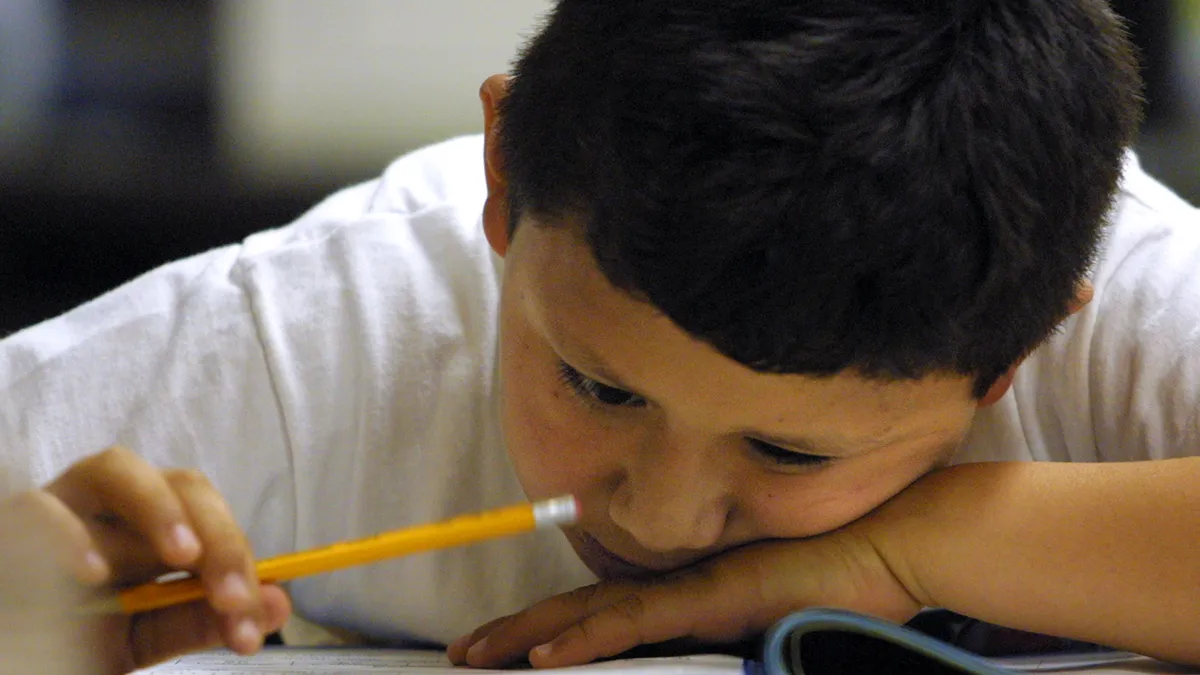Washington, D.C. – Education leaders from Massachusetts and North Carolina are using data analysis, professional development, and the sharing of best practices to promote COVID-19 learning recovery efforts in their states.
These states are focused on helping classroom teachers accelerate student learning, rather than remediation efforts, education industry leaders heard during a Thursday session at the National Forum on Education Policy.
In Massachusetts, for example, state leaders had conversations about what learning acceleration means and concluded it's a research-based approach to providing students with regular opportunities and access to grade-level work, said Komal Bhasin, chief schools officer at the Massachusetts Department of Elementary and Secondary Education.
To explain how teachers should approach acceleration, state leaders visited districts, sharing examples of how teachers can review and re-teach skills while still providing instruction on timely content. An algebra teacher, for instance, may need to incorporate a review of fractions during lessons on equations, Bhasin told the forum.
"Acceleration might mean a mini-lesson on fractions before we jump into that day's content and really connecting what we pre-teach the algebra objectives to students," Bhasin said. "The goal here of acceleration is to make sure we keep advancing grade-level content first."
In North Carolina, the state has launched the Office of Learning Recovery & Acceleration to provide technical assistance and share best practices.
The office has helped districts analyze data to make informed decisions about supports for students and staff, as well as provide resources to districts as they make spending decisions for COVID-19 relief funding, said Michael Maher, the state's deputy superintendent of standards, accountability and research.
The state is also working with higher education institutions to conduct research on the impact of instructional practices, Maher said. Some of that work includes looking at the learning recovery impacts for students whose education was disrupted due to the pandemic and hurricanes.
"This idea in North Carolina that we've had is let's get the best available quantitative data and extract that data with qualitative experience and tell the story of children and teachers and parents in North Carolina," Maher said.
By gathering this information, the state hopes to better understand which interventions are effective, not just in a post-pandemic environment, but for other disrupted and nondisrupted learning scenarios as well, Maher said.













